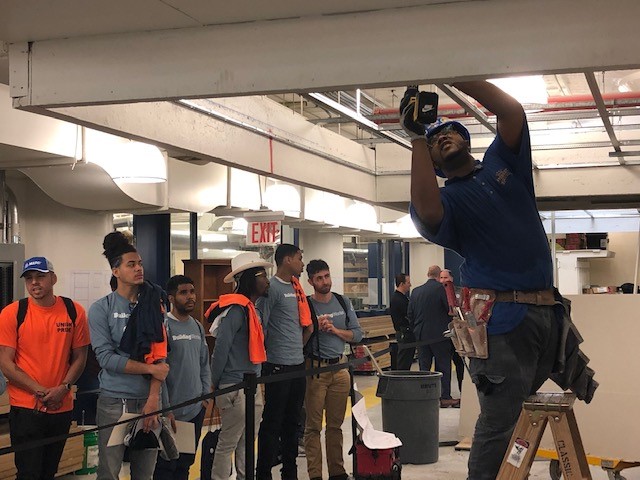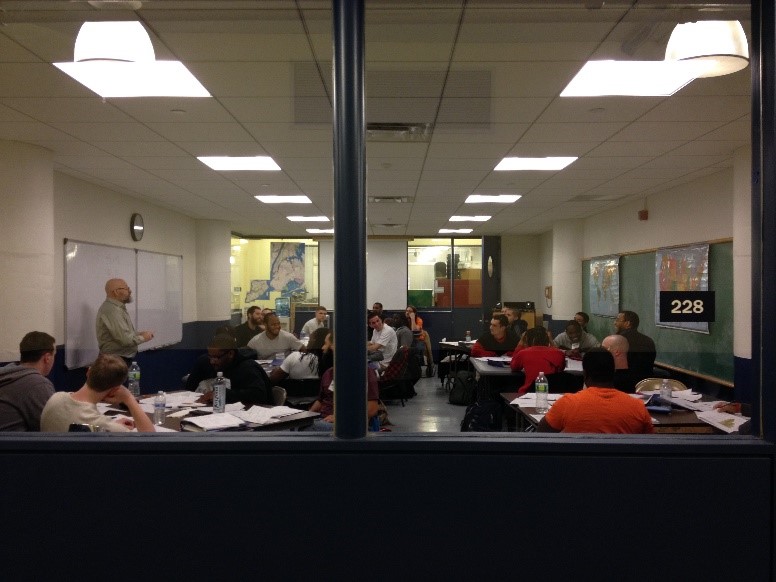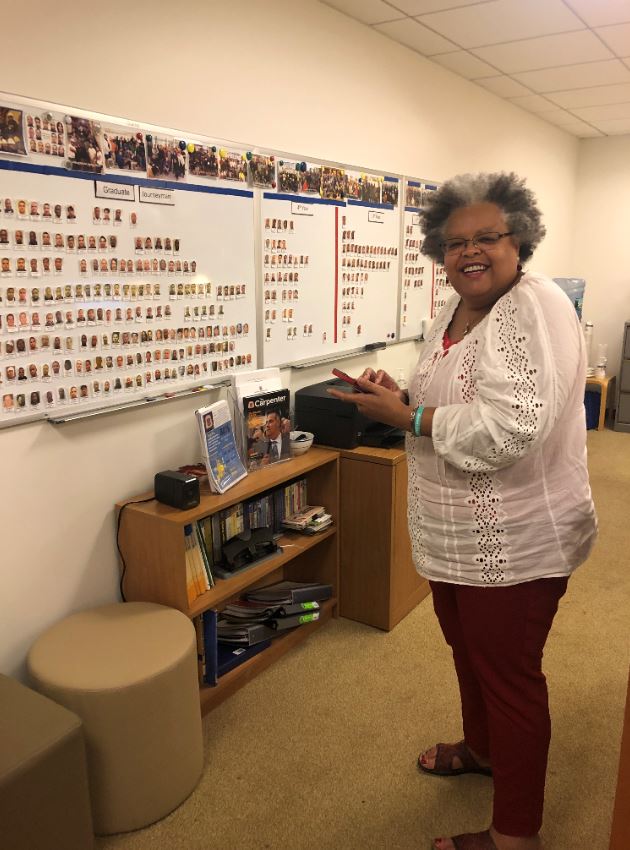Atlantic Center for Occupational Health and Safety
The Atlantic Center for Occupational Health and Safety is led and directed by Mitchel Rosen, Ph.D., and housed at Rutgers, The State University of New Jersey, School of Public Health. The Center’s ECWTP operates as a pre-apprenticeship program, known as the BuildingWorks Pre-Apprenticeship (BuildingWorks).
Target Populations: BuildingWorks serves low-income, underserved communities living in metropolitan areas surrounding New York City, and Newark, New Jersey.
Training Strategy: BuildingWorks prepares and helps trainees move into a unionized apprenticeship, where they can gain skills to build a long-term career in construction trades as a master carpenter. BuildingWorks is approved by the New York State Department of Labor as a direct entry program.
Impact: Since 1995, BuildingWorks has trained more than 1,000 individuals. This continual success is due to a long-standing partnership between Rutgers and the New York City District Council of Carpenters Training Center (Carpenters), the primary training provider for BuildingWorks.

(Photo courtesy of Joan Staunton)
The BuildingWorks pre-apprenticeship to apprenticeship model ensures that trainees get paid during training, and that they obtain the skills needed for successful, lifelong careers in their field.
“We want to train unemployed and underemployed individuals for careers in meaningful, safe, and well-paying jobs as unionized apprentices or in related fields,” said Mitchel Rosen, Ph.D., director of Atlantic Center.
To increase awareness of BuildingWorks as an opportunity for employment, program staff work with different community-based organizations, workforce development centers, and social service agencies to connect and recruit individuals who are unemployed or underemployed living in low-income, minority communities.

(Photo courtesy of Joan Staunton)
Individuals are screened via applications, basic skills testing, and one-on-one interviews. Once enrolled, trainees come into a 10-week program that includes technical training and classroom instruction that falls into four broad categories: introduction to union apprenticeship; life skills and career guidance; environmental; and worker health and safety.
Individuals that successfully complete BuildingWorks move on to the Carpenters’ apprenticeship, a four-year program where trainees receive on-the-job training from experienced carpenters in the field as well as industry-specific classroom instruction for several weeks out of the year at the Carpenters Training Center.

(Photo courtesy of Mitchel Rosen, Ph.D.)
BuildingWorks utilizes a picture board to track trainees’ progress through different levels of the pre-apprenticeship and the four-year Carpenters’ apprenticeship. It also serves as a way for trainees to keep track of and motivate others within their cohort.
“When graduates come in, they’ll run to the Picture Board to see how their fellow trainees are doing,” said Joan Staunton, grants manager and director of BuildingWorks. “This is the idea behind the union, because it is a brotherhood. They are very supportive of one another’s progress and success.”
BuildingWorks also utilizes a database to track program graduates’ employment status and accomplishments for at least five years. Program staff follow-up with graduates to collect and document wage increases via pay stubs and anecdotal information via electronic surveys. These surveys help gather information about financial goals that graduates have reached, such as big purchases (e.g., homes, cars) and debts paid off.
BuildingWorks continues to make lasting impacts on individuals’ lives, as well as broader communities served in New York City and Newark. Over time, partnerships with local organizations, agencies, and workforce development programs, as well as supplemental funding from the New York State Department of Labor, Newark Mayor’s Office of Employment, the Robin Hood Foundation, and others, have made individual and community-level successes possible.
BuildingWorks coordinates with community organizations to offer volunteer service-learning projects such as helping clean up, repair, and rebuild damaged houses and buildings after natural disasters. Following Hurricane Sandy, the World Cares Center, a longstanding partner of the Atlantic Center, coordinated many volunteer opportunities throughout the city. Lisa Orloff, the organization’s founder, requested BuildingWorks volunteers to participate in work crews to repair private homes in Staten Island and Brooklyn and rebuild a church in Rockaway.
These opportunities are especially important to the success of BuildingWorks. “Whenever there is a volunteer opportunity, we try and coordinate that with current students or graduates,” said Staunton. “It gives them some hands-on skills in the community.”
Several renewable energy jobs are on the rise in New York City and Newark, such as installation of wind turbines and solar panels. These jobs will require proper training, specific carpentry skills, and more sustainable building practices. Staunton said with these jobs in mind, changes for recruitment strategies and training curricula are very likely. These changes will also dictate engagement and collaboration with new partners, which are all dependent on future direction of the program.

(Photo courtesy of Everett Kilgo, BuildingWorks program manager)
A. Coleman, BuildingWorks Graduate
Before enrollment, Coleman was earning minimum wage, had unstable housing, and had been previously incarcerated. He completed BuildingWorks in 2014 and began the Carpenters Apprenticeship shortly after. He graduated the apprenticeship in 2018. Coleman is now a journeyman. He recently reported that he earns over $100,000, has purchased a home, paid for his child’s education. He stated that he is very confident about his financial future and indicated that he has investments in addition to retirement savings.

This image was created using data from a financial survey of graduates from 1995 to 2018 conducted in fall of 2019. (Photo courtesy of December 2019 ECWTP meeting presentation delivered by Everett Kilgo, program manager for BuildingWorks)
to Top


